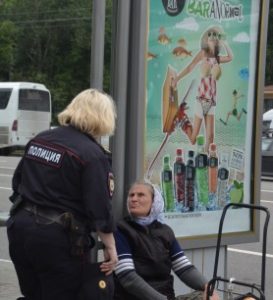Although at times it may not seem like it, the pandemic will inevitably end. At that point, it is tempting to believe that we’ll all be able to just go back to our offices and things will get back to normal.
It’s not that simple.
The pandemic has fundamentally changed how employees relate to their work.
As a manager these are some of the challenges you’ll face:
- More than 25% of workers are willing to look for other work if they’re forced back into the office full time.
- More than 75% of workers still want to work remotely full or part time.
- Hybrid work arrangements are a solution, but present a scheduling nightmare.
- You’ll be managing a combination of remote and onsite workers.
- Workers are suffering unprecedented mental health challenges ranging from pandemic loneliness to losing loved ones to Covid. They’re expecting their employers to accommodate this.
- The pandemic has put the values, humanity, and empathy of corporations into sharp relief. Workers are now much less willing to work for a company whose values do not match their own.
- The post-pandemic economic recovery will make it harder to retain good people, especially if you don’t provide the work environment that they expect.
- Navigating with your workers to design the “new normal” is a tricky and risky process that will require empathy, insight and trust.
- Many of these factors have already resulted in the “Big Quit” or “Great Resignation” of 2021. Dissatisfied workers are leaving their jobs in droves and the competition for talent is fierce.
It is a daunting mix of challenges.
Following are some thoughts, information, and insights that will help you prepare for this journey and reduce the unpleasant surprises along the way.
Hybrid, Remote, or Onsite. What are the options?
One of the first hurdles is to decide on the mix of work arrangements you’ll have The research consistently shows that hybrid working arrangements where workers are in the office 3 out of 5 days create the best outcomes for organizations and their employees.
But the best teamwork requires face-to-face time for the information-rich conversations necessary for creativity, problem-solving, and building cohesion. Without this nuanced, in-person interaction including eye contact and body language, it is more difficult to form bonds, trust, and team synergy. These random connections are critical for building team culture and this is why there will always be a place for the office and why companies that realize this will have a competitive advantage.
Conversely, some tasks are best suited to independent, uninterrupted remote work where the required information is codified and easily accessible remotely.
But corporations are all over the map when it comes to their post lockdown reality.
Tech firms such as Twitter, Dropbox, Shopify, and Reddit are giving employees the option to work remotely permanently. Phillips 66 on the other hand, has already brought back most of its staff to its headquarters in Houston. Financial industry players Blackstone, JPMorgan and Goldman Sachs have also forced employees to be back on site.
Most organizations are going for some kind of hybrid model with a combination of onsite and remote work. But this has its own challenges. For the benefits of onsite interaction to occur, you need to have the right people on-site at the same time. This leads to the scheduling nightmare that organizations adopting this model are already facing. How do you line up all the conflicting worker schedules and non-work commitments to make this happen? It will require plenty of give-and-take from both sides.
There will be workers who spend most of their time at the office and those that stay mainly at home. This can create a face time bias which leads to office employees being favoured over remote workers for career advancements. Remote workers can be overlooked because others assume that if they were serious they would be at the office. This can quickly balloon into an employment equity issue. You’ll need to develop ways to counteract this so that both remote and onsite employees have equal opportunities to move up in the company.
Working from home can also create a personal sense of disconnection from the organization. Whatever you can do to help your people create a workspace separate from their living space will help them feel like they are “at work.” One way is to provide a workstation setup that incorporates your corporate branding to help remind them that they are a part of something.
As part of the hybrid environment, organizations are looking forward to reducing their office footprint. In Britain, HSBC is predicting a 40% reduction in its long-term office needs. By 2023, Lloyds Banking Group is counting on a 20% drop in office space. This means that workers will no longer have their own desks.
This can be a problem, as people feel most safe and comfortable when they have their own space at work. After the disruption of Covid-19, this is particularly important because it can help make things feel normal and familiar and ease the return-to-work stress. If you are hot-desking, then at least provide a locker or bin where people can keep their “work kit” and bring it to whatever desk they’re using that day.
Mental and Physical Health Pitfalls
Research both before and during lockdown shows a sharp increase in loneliness amongst remote workers. Zoom and other technologies are not a substitute for in-person connectedness and often have the opposite effect. The result is higher rates of employee burnout, turnover, and disengagement.
Despite the efficiency and convenience of remote work, it may result in a simmering mental health crisis.
The list of issues affecting your employees as they return to the office may be numerous: grieving a loved one lost to the virus, financial stress from a spouse’s layoff, loneliness, and more.
The pandemic has created a situation where almost all employees will be dealing with personal challenges. Extending the kindness and consideration with which you led your employees through the lockdown into the post-lockdown environment will be crucial. Small kindnesses can go a long way.
And as a leader, don’t forget to be kind to yourself. You’ve been under just as much if not more stress than your workers. Don’t hesitate to seek out support.
Your Culture Could be Fading
Of workers surveyed, 61 percent agree that remote work has changed their company's culture significantly. 47 percent say they feel more disconnected from the corporate values.
With hybrid work models, cultural cohesion is even more important. When you’re not physically immersed in the culture, it’s much more difficult to relate to it and become part of it. Organizations will have to pay close attention to workplace culture and make sure that remote workers feel part of it. Social engagement is critical for this to happen.
All of your stakeholders including employees, customers, and shareholders are holding organizations up to much higher standards. Workers want to know that the behaviour and values of the organization they’re spending their days at are aligned with their own. Activist shareholders are demanding a higher standard of behaviour. Customers are choosing to do business with companies that hew to similar values as their own.
More than ever, organizational culture will be either a competitive advantage or an obvious liability.
Retention is Becoming a Major Issue
In a McKinsey survey, more than 25% of pandemic remote workers said that they may switch employers if forced to return to fully on-site work.
Mental health, work-life balance, and flexibility are now top of mind for workers.
As the economy picks up, people will start looking for other opportunities if employers do not meet their post-pandemic expectations. In addition to the McKinsey survey, a recent study by Prudential provided even more startling numbers. Fully 42% of workers would not want to work where they were required to be on-site full time.
This is a seismic change in the HR landscape and many organizations will struggle to adapt and will lose valuable workers because of it.
It's Critical That You Make A Plan
Every leader who sees the writing on the wall will want to know what employees will demand in the post-lockdown world. As always, the best way to find out is to ask them. But not through a survey. You’ll need something more in-depth. Depending on the level of trust and openness in your organization, you may be able to do this internally through an honest, collective forum. A skilled facilitator will make the most of this process by keeping the conversations focussed and providing a methodology for openness, trust, and information capture.
If the trust level is not up for this, you can bring in an impartial third party to have one-on-one conversations with a representative sample of your workers. I’ve provided this service many times and it always amazes me what people are willing to share with me confidentially over the phone. This input paired with my interpretations and advice has proven invaluable and often surprising to the leaders.
Based upon this information-gathering from your workers, you will need to modify your work environment to optimize everyone’s contribution to the organization while still providing the flexibility they demand.
Working from home is best for independent tasks when communication at a distance suffices. However, when work is interdependent, fluid, creative, and unpredictable, it’s best to be together at the office. You must prepare your employees for a detailed look at the type of work they do to assess how much of it depends on proximity for quality and how much of it can be done remotely.
If you adopt a hybrid arrangement, you’ll require a structure that ensures that employees are together for the parts of the work that have the greatest need for interdependence. This is conceptually simple but operationally complex.
I Can Help
You can take advantage of my facilitation skills, team dynamics insights, and impartial perspective to help you navigate through this crazy time. I’ve helped hundreds of leaders and organizations just like yours get through difficult patches and come out ahead. You’ll save time, money, and stress and reduce the risk of losing top performers. Call or email me to get a feel for my approach. If it feels right, we can get the ball rolling!
Call me at +1 (403) 270-0000 or email me at info@experienca.com
Author

Trent Schumann has been helping organizations overcome their Team Dynamics, Training, and Technology challenges since 1992. Whether he's working with a global multinational or a small enterprise, his clients value him for his practical, actionable advice and his insights into the root causes of dysfunction in their team dynamics, training, and technology.
He's worked with 100's of teams with 1000's of challenges and is happy to share what he knows and bring all those lessons to bear on whatever challenge you're facing.



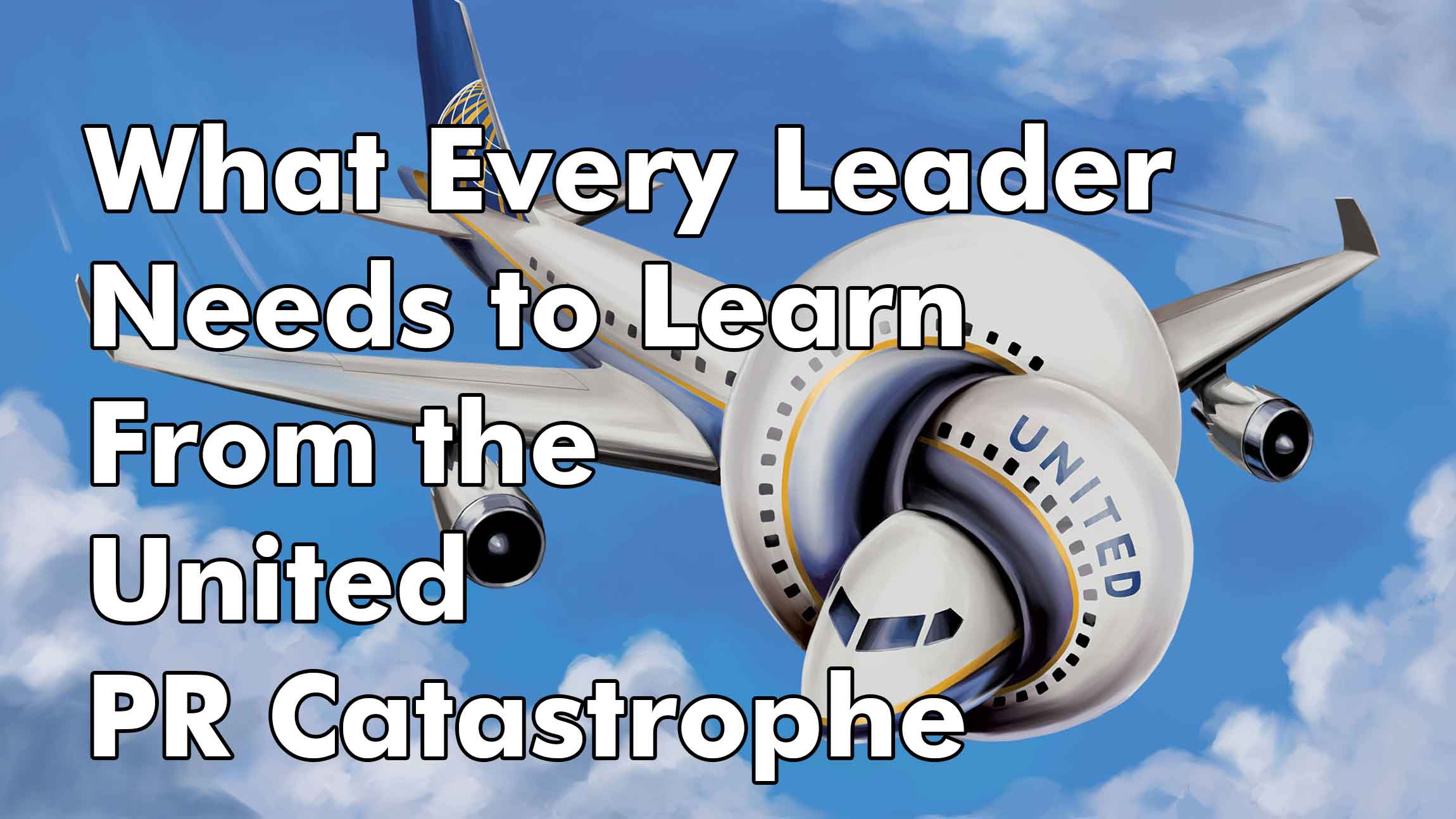


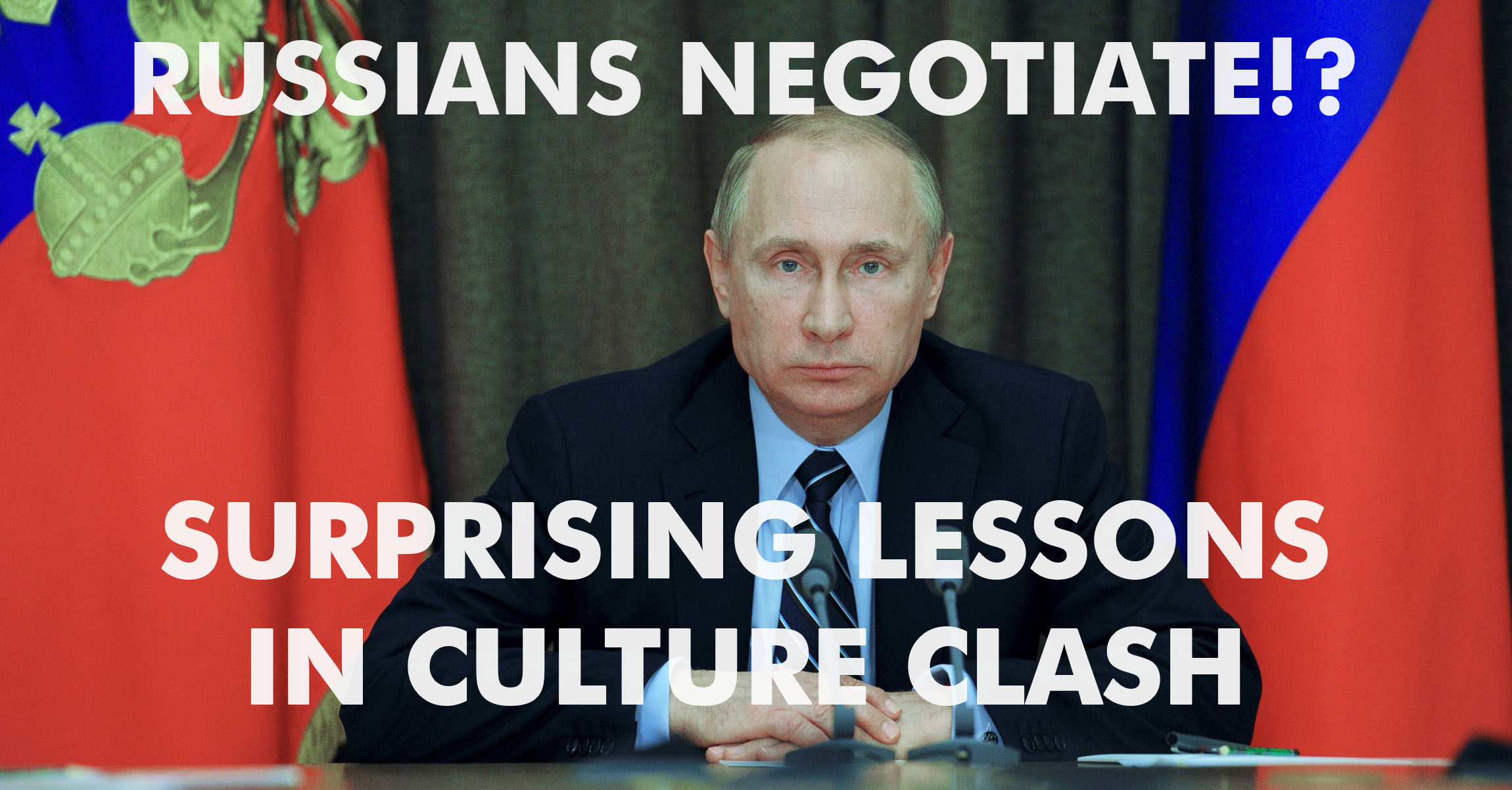

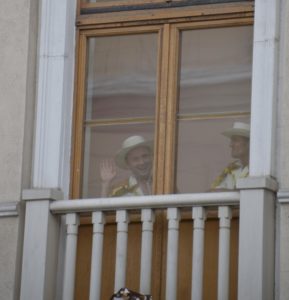
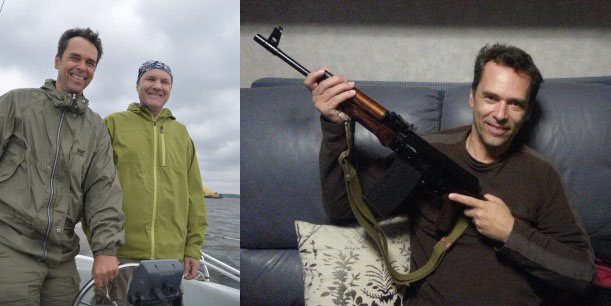
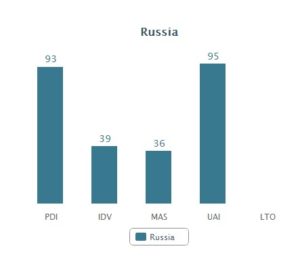 It's a dog-eat-dog world in Russia and faced with adversity, Russians depend on their "in group" of family, friends and even neighbours. Relationships are vital in negotiations, making contacts and getting ahead. This is reflected by their low individualism (IDV) score on Hofstede's cultural dimensions. Western business people would do well to put relatively more effort into creating good relationships and less into honing the "pitch".
It's a dog-eat-dog world in Russia and faced with adversity, Russians depend on their "in group" of family, friends and even neighbours. Relationships are vital in negotiations, making contacts and getting ahead. This is reflected by their low individualism (IDV) score on Hofstede's cultural dimensions. Western business people would do well to put relatively more effort into creating good relationships and less into honing the "pitch".
